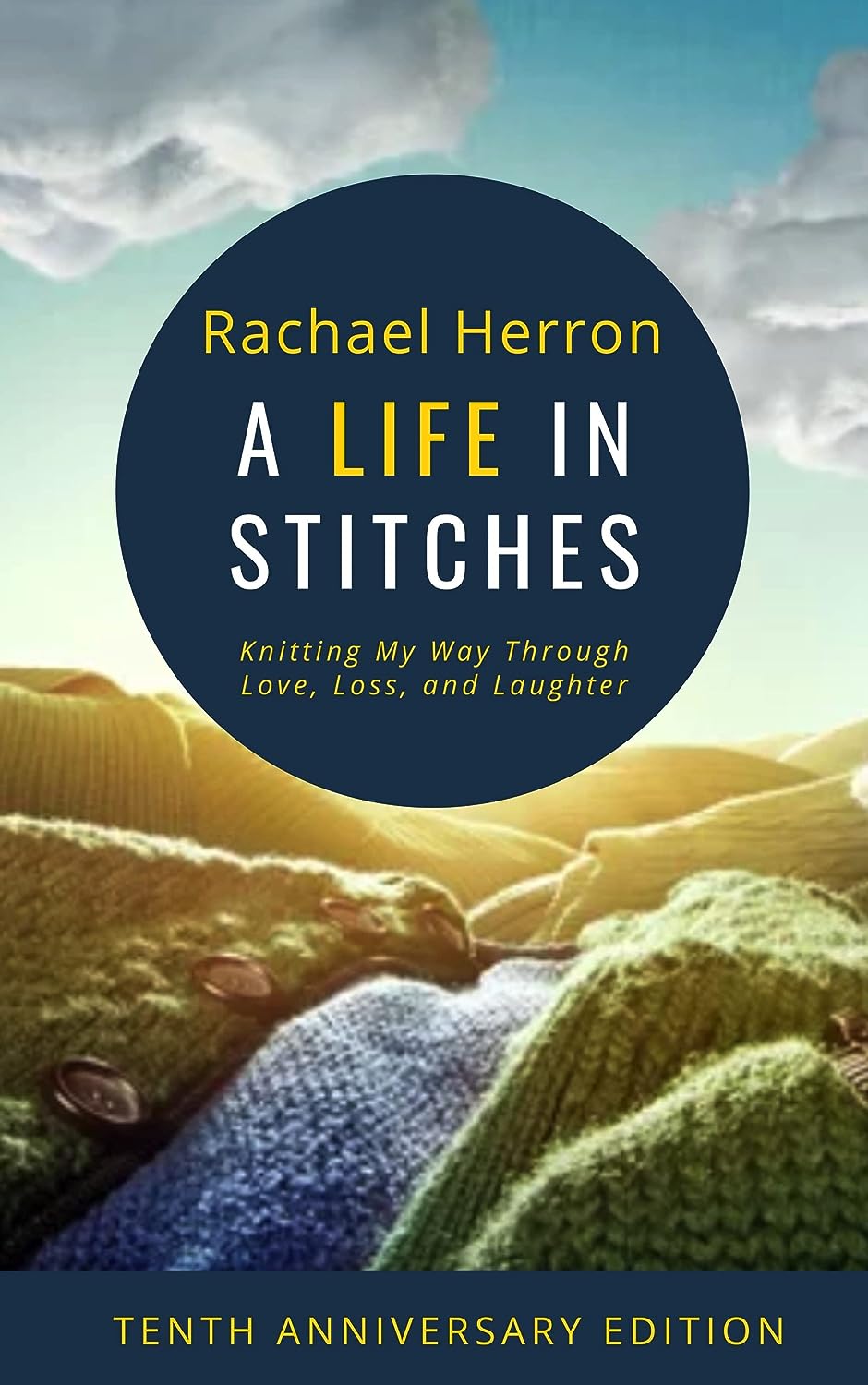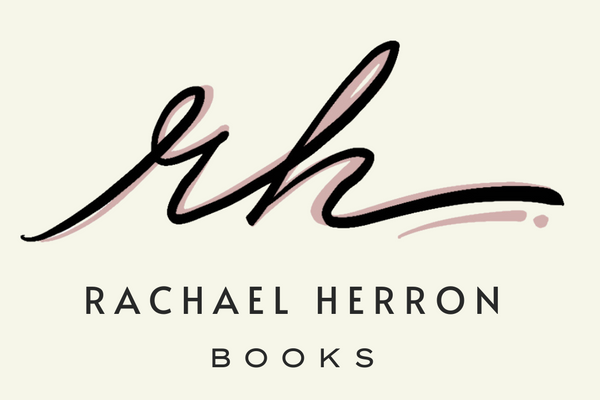Meet Rachael Herron
 Rachael Herron is the internationally bestselling author of more than two dozen books, including thrillers (under R.H. Herron), mainstream fiction, feminist romance, memoir, and nonfiction about writing. She received her MFA in writing from Mills College, Oakland, and she’s taught writing extension workshops at both UC Berkeley and Stanford. She is a proud member of the NaNoWriMo Writer’s Board. A New Zealand citizen as well as an American, she lives in Wellington, New Zealand with her banjo-playing wife and brick-eating dog.
Rachael Herron is the internationally bestselling author of more than two dozen books, including thrillers (under R.H. Herron), mainstream fiction, feminist romance, memoir, and nonfiction about writing. She received her MFA in writing from Mills College, Oakland, and she’s taught writing extension workshops at both UC Berkeley and Stanford. She is a proud member of the NaNoWriMo Writer’s Board. A New Zealand citizen as well as an American, she lives in Wellington, New Zealand with her banjo-playing wife and brick-eating dog.
Email: rachael@rachaelherron.com
Literary Representation: Susanna Einstein at Einstein Literary Management
In-Person Teaching
Feel free to contact Rachael about teaching at your writing conference/seminar.
Classes include:
- Fast-Draft Your Memoir
- How to Plot Your Novel
- How to Revise Your Book
- Trad- or Self-Pub: Which is Right For You? (aka Show Me the Money)
- Finish That Novel
- Plotting Vs. Pantsing: Who’s Right?
- Time Management for Writers
- Breaking Into Romance
Rachael’s Book Club
I can come to your book club, free, courtesy of Zoom! Just have five or more people who’ve read my book and I’ll call in for an hour or so to visit. We’ll both make sure we’re online at the same time, and the video visit is on (you may want to use a laptop and hook up external speakers for ease of hearing/viewing at your book club party). Easy and soooo fun! Shoot me an email at rachael@rachaelherron.com to schedule a visit!
Frequently Asked Questions for Rachael
What if you’re not teaching anywhere near me?
Feel free to take my How To Stop Stalling and Write Your Book class online! 80+ minutes of video teaching, half motivation, half toolbox. Make sure you’re on my writer’s email list to hear first about my other classes! Sign up HERE. Or if you’re in need of a BIG push, my 90 Days to Done and my 90 Day Revision masterclasses are where writers write and revise their books! (These sell out quickly and I don’t offer them often, so make sure you’re on the email list to find out when they open!)
When did you decide to write professionally?
I’d always wanted to be a writer, since the time I knew what a book was (board books, anyone). I wanted to be one of the people making the stories real. I wrote all through grade and high school, and I got a Bachelor’s degree in English from Cal Poly SLO and then a Master of Fine Arts degree from Mills College. But even after I finished grad school, I didn’t settle into writing regularly, with the intention of publishing, until 2006, when I participated in NaNoWriMo for the first time.
You always mention that NaNo thing. What is that?
National Novel Writing Month (NaNoWriMo) is an annual writing project in which people attempt to write a novel in the month of November. Writing 50,000 words (1667 words a day) makes you a WINNER! Even if all your words are crap, and you didn’t have one original idea, as long as you did the writing, you win. Of course, the beauty is that during the month you WILL have smashingly original ideas, thoughts only you could come up with. Writing fast and hard means you shut off that internal editor that sits on your shoulder saying you suck. You don’t suck. You’re a great writer. You just have to write more; we all do. So do it fast! Fix it later! Oh, BOY, I love NaNo. It changed my life.
So you wrote 50,000 words and published a book, just like that?
I wish. No, I put the 50,003 words away in a virtual drawer and didn’t think about them for a while. I pulled it out the next August, and started cleaning it up and thinking about how to end the darn thing. Then two readers of my blog (Michele Z. and Janice M.) sent me comments encouraging me to enter an online contest for Best First Romance Novel, which I did. I finalled in the top five, which made me clean it up some more. Then I started sending it out to agents, and the rest was easy — all downhill from there.
Really?
No way.
Was it hard to find an agent?
It’s not hard to FIND the agents (AgentQuery.com is a great place to look), it’s just hard to get them to read your work and offer you representation. There’s a lot of competition out there, so before you start worrying about how to find an agent, concentrate on getting your manuscript in the best shape you can possibly whip it into. Then do a little more work on it. Once you’ve done that, then you’re ready to write your query letter. Spend time on this, do it right. Then send it out to three or four agents. Wait a while. Get some rejections. Revise your query letter. Send it out to three or four more. Lather, rinse, repeat. My agent is the best agent in the whole wide world, I know this for a fact, but it took me thirty-two query letters to find her. (Never pay an agent up front. That’s a scam. See HERE. Agents make money when they make YOU money (generally 15% domestic, 20% foreign).)
After you got your agent, how long was it until you sold?
Well, THAT was awesome. I had the fairy tale there: My agent and I got together in August 2008. I revised during September based on excellent suggestions she’d made. In October she took it out on submission, and within a week there were two major publishing houses that both wanted it, and it sold in a three-book 6-figure deal at auction. (That’s the good news! I like to be honest and upfront about everything including money, though. A $110,000 deal for three books over three years, after agent fees and taxes, is a take-home amount of $18,000/year. Not quite enough for me to live on in the Bay Area (you think?), so I needed to keep my day job for 8 years after I made that first sale.)
What’s changed in your life since you were published?
In 2016, I was able to afford to make the jump from working two jobs (911 fire/medical and writing) to just one: I’m a full-time writer now! It’s wonderful! It’s also exhausting and scary and it’s a full-throttle hustle. But I’m making it work with a combo of teaching and publishing. And I never stop feeling grateful.
What is your writing day like?
In an ideal world, I wake up early. I start by writing for 45 minutes. After I’ve done that, I can screw around online, checking email and TikTok for 15 minutes. Then I’m back to working, 45 on, 15 off, until early afternoon. Then I break to take a hike in the hills of Wellington. Then in the late afternoon, I edit the work I’ve done in the morning, and end the night by eating dinner on the back porch with Lala and watching TV or a movie until I fall asleep. That’s ideal, anyway. It doesn’t usually go that smoothly.
What do you need to write? Music? A certain beverage?
I like either quiet or loud white noise. I have a couple of tracks that I listen to while I’m writing — they’re thunderstorms as heard from the ocean and the tropical forest. If I’m in the cafe, they dull all conversation around me so that I can still hear the timbre of voices, but I can’t distinguish words, and if I’m at home, it just puts me in the mood. I turn off the white noise when I’m on my “breaks,” checking email. To go back into the zone, I cue it up again. As to beverage: water, always. And tea!
What’s your revision process like?
Interminable! But enjoyable. Honestly, I love revising. I love revision way more than first drafts. First drafts are agonizing. Every step of the way, you’re wondering if you’re going to get through it, if you have enough of an idea to sustain a whole book, or if you have too much to write about. On second (and third and fourth and fifth and sixth) drafts, you get to play in the mud you made. You get to push it around and make things with it, try pieces over here, throw whole chunks out. Sometimes, at the end, the book you end up with is barely recognizable as the book you started with. But it’s so much better than you ever thought it could be.
How do you handle writer’s block?
Honestly? I don’t believe in it. You may be stuck on a project, but there’s something else you can work on. There’s always something else. If you can’t work on the novel, then do a blog post. If you can’t do that, then Twitter’s 280 character limit might feel more manageable. But writing…you can always write. Make yourself. Even if it’s the worst writing you’ve ever done, worse than anyone has ever done, tomorrow it won’t look quite as bad as you think it will.
Do you have any advice for aspiring writers?
Try NaNoWriMo, at least once. Make friends with other writers — they’ll be your salvation. And write a little bit, every day. Every single day. It all adds up, so much faster than you think. Join my writer’s list of encouragement!
Will you read my manuscript? Or write me a blurb? Or an introduction? Please? It’s good. I promise.
I know it is. I bet your book is wonderful. I would love to say yes, I really would. But here’s the problem: I’m always so far behind in reading the books I have to read for giving blurbs (these come through my agent and editor) as well as reading manuscripts of my crit partners, and if I did say yes to you for some reason, I would be exceedingly worried about letting you down because when balls get dropped, reading manuscripts (even just a chapter or two) is the usually first thing to hit the ground. It wouldn’t be fair to you. And seriously, I get paid to write. Not to edit or write prefaces.
That said, I really do believe in you. Find your group, right where you are. Find people who are writing the same kind of thing, and preferably, find those who are in the same stage of writing as you are, so you can help each other break the way. You can do it. It’s hard, and it’s a slog, but I know you can do it.
Can I be on your podcast?
I’d love to have you on How Do You Write. I have a couple of requirements: the show is committed to amplifying the voices of marginalized communities, so I’m only interviewing women, BIPOC, writers with disabilities, and LGBTQIA writers – do let me know if you fit a category!
You need one trad-pubbed novel/memoir, or three self-pubbed books, no non-fiction how-to-write/market/sell titles. And sorry, no hybrid-published authors. Most hybrid presses are the new vanity publishers and make their money from taking writer’s hard-earned cash, rather than selling books. Use extreme caution, and if you do publish with one, make sure you check them against the Alliance of Independent Authors industry ratings. It’s also useful to google the publisher + “scam”/”predatory.”

